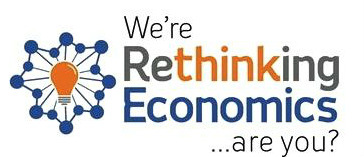Dani Rodrik disses rethink economics students (IV) Economics students today are complaining more and more about the way economics is taught. The lack of fundamantal diversity — not just path-dependent elaborations of the mainstream canon — and narrowing of the curriculum, dissatisfy econ students all over the world. The frustrating lack of real world relevance has led many of them to demand the discipline to start develop a more open and pluralistic theoretical and methodological attitude. Dani Rodrik has little understanding for these views, finding it hard to ‘understand these complaints in the light of the patent multiplicity of models within economics.’ Rodrik shares the view of his colleauges Paul Krugman, Greg Mankiw and Simon Wren-Lewis — all of whom he approvingly cites — that there is nothing basically wrong with ‘standard theory’ and ‘economics textbooks.’ As long as policy makers and economists stick to ‘standard economic analysis’ everything is fine. Economics is just a method that makes us ‘think straight’ and ‘reach correct answers.’ Writes Rodrik in Economics Rules: Pluralism with respect to conclusions is one thing; pluralism with respect to methods is something else … An aspiring economist has to formulate clear models … These models can incorporate a wide range of assumptions … but not all assumptions are equally acceptable.
Topics:
Lars Pålsson Syll considers the following as important: Economics
This could be interesting, too:
Lars Pålsson Syll writes Schuldenbremse bye bye
Lars Pålsson Syll writes What’s wrong with economics — a primer
Lars Pålsson Syll writes Krigskeynesianismens återkomst
Lars Pålsson Syll writes Finding Eigenvalues and Eigenvectors (student stuff)
Dani Rodrik disses rethink economics students (IV)
 Economics students today are complaining more and more about the way economics is taught. The lack of fundamantal diversity — not just path-dependent elaborations of the mainstream canon — and narrowing of the curriculum, dissatisfy econ students all over the world. The frustrating lack of real world relevance has led many of them to demand the discipline to start develop a more open and pluralistic theoretical and methodological attitude.
Economics students today are complaining more and more about the way economics is taught. The lack of fundamantal diversity — not just path-dependent elaborations of the mainstream canon — and narrowing of the curriculum, dissatisfy econ students all over the world. The frustrating lack of real world relevance has led many of them to demand the discipline to start develop a more open and pluralistic theoretical and methodological attitude.
Dani Rodrik has little understanding for these views, finding it hard to ‘understand these complaints in the light of the patent multiplicity of models within economics.’ Rodrik shares the view of his colleauges Paul Krugman, Greg Mankiw and Simon Wren-Lewis — all of whom he approvingly cites — that there is nothing basically wrong with ‘standard theory’ and ‘economics textbooks.’ As long as policy makers and economists stick to ‘standard economic analysis’ everything is fine. Economics is just a method that makes us ‘think straight’ and ‘reach correct answers.’
Writes Rodrik in Economics Rules:
Pluralism with respect to conclusions is one thing; pluralism with respect to methods is something else … An aspiring economist has to formulate clear models … These models can incorporate a wide range of assumptions … but not all assumptions are equally acceptable. In economics, this means that the greater the departure from benchmark assumptions, the greater the burden of justifying and motivating why those departures are needed …
Some methods are better than others … For some these constraints represent a kind of methodological straitjacket that crowds out new thinking. But it is easy to exaggerate the rigidity of the rules within which the profession operates.
Although Rodrik often likes to present himself as a kind anti-establishment economics iconoclast, when it really counts, he shows what he is — a mainstream neoclassical economist fanatically defending the relevance of standard economic modeling strategies.
So, all you young economics students that want to see a real change in economics and the way it’s taught — now you know where you have Rodrik, Mankiw, Krugman & Co. If you really want something other than the same old mainstream neoclassical catechism, if you really don’t want to be force-fed with mainstream neoclassical deductive-axiomatic analytical formalism, you have to look elsewhere.
Heterodox economics, in the first instance, is a rejection of a very specific form of methodological reductionism. It is a rejection of the view that formalistic methods are everywhere and always appropriate.
